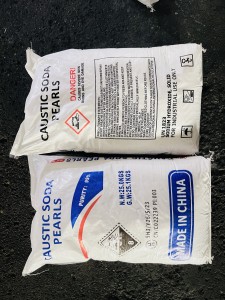Sodium hydroxide, also known as caustic soda, is a versatile and powerful chemical compound with a wide range of uses and benefits. From industrial applications to everyday household products, sodium hydroxide plays a crucial role in various processes and industries.
One of the most common uses of sodium hydroxide is in the manufacturing of soaps and detergents. Its strong alkaline properties make it an effective ingredient for breaking down grease and grime, making it an essential component in cleaning products. Additionally, sodium hydroxide is used in the production of paper and textiles, where it helps to remove impurities and improve the quality of the final products.
In the food industry, sodium hydroxide is used in the processing of certain foods, such as the production of pretzels. It is also used in the production of cocoa and chocolate to help neutralize the acidity of cocoa beans. Furthermore, sodium hydroxide is a key ingredient in the production of various food additives and preservatives.
In addition to its industrial applications, sodium hydroxide is also used in water treatment processes. It helps to adjust the pH levels of water and remove impurities, making it safe for consumption and other uses. Moreover, sodium hydroxide is used in the production of biodiesel, where it acts as a catalyst in the transesterification process.
Despite its numerous uses, it is important to handle sodium hydroxide with caution due to its corrosive nature. Proper safety measures should be taken when working with this chemical, including the use of protective gear and following strict handling guidelines.
In conclusion, sodium hydroxide is a powerful and versatile chemical compound with a wide range of uses and benefits. From industrial applications to everyday products, its alkaline properties make it an essential ingredient in various processes. However, it is important to handle sodium hydroxide with care and respect its potential hazards.
Post time: Jun-12-2024









